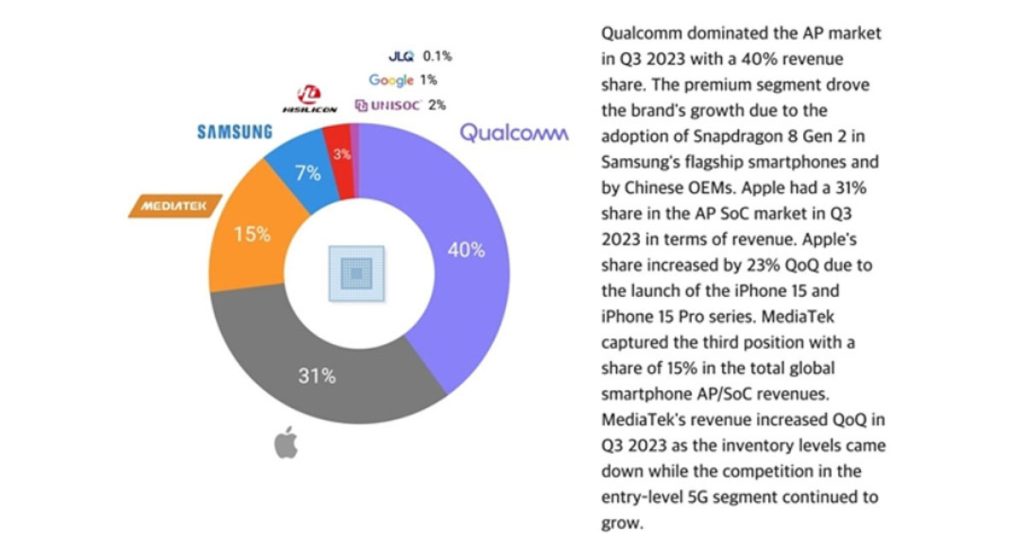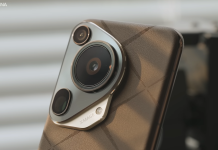After facing hurdles due to US sanctions and chip shortages for years, Huawei’s Kirin processor has bounced back in a big way, reclaiming a spot in the top five global chipmakers.
According to a Q3 2023 report by Counterpoint Research, chip maker Hisilicon (wholly owned by Huawei) now holds 5th place with a 3% share of the global chipset market. This marks a significant recovery for the company, which struggled to find alternatives after being blacklisted by the US government.

Huawei’s resurgence can largely be attributed to its 2023 product offering starting with the Mate 60 series. The smartphone, equipped with a 5G-enabled Kirin 9000s processor, became an instant hit in China. Thanks to this, Huawei is now finally back in the global chipmaker’s race.
Other Kirin-powered devices like the Mate X5 foldable phone and MatePad Pro 13.2 (review) tablet have also received positive feedback from users in China, further solidifying the company’s position in the market. The momentum is expected to continue in 2024 with the launch of the mid-range Nova 12 series, rumored to feature Kirin processors.
While Huawei’s comeback is impressive, Qualcomm remains the dominant player with a 40% market share, largely thanks to the use of its Snapdragon 8 Gen 2 processor in premium Chinese flagships. Apple follows closely behind in second place with a 31% share, driven by the iPhone 15 series.
MediaTek holds the third position in terms of revenue with a 15% share, and Samsung is fourth with a 7% market share. After Huawei, Unisoc comes in at sixth position with a 2% market share and Google’s Tensor SoC has also secured a decent 1% market share while ranking seventh on the list.
Related:
- Huawei Nova 12 Pro leaked image reveals new Kirin 8000 processor
- China’s Huawei announces new 5nm Kirin 9006C chip despite US sanctions
- Giztop’s Christmas Holiday Savings: Unwrap Joy with Exclusive Discount
- OnePlus Ace 3V key specifications tipped, likely to launch soon
- Get $100 Off on Vivo X100 Pro at Giztop
- Get the Realme GT5 Pro phone on Giztop for $599
- Best smart luggage of 2023: Modobag, Weego, Incase & More







